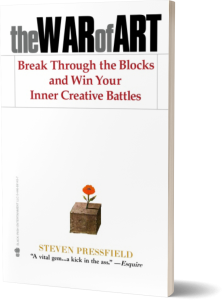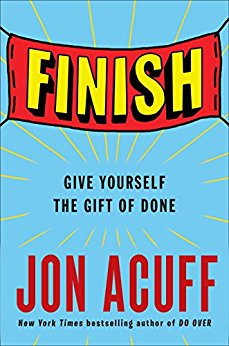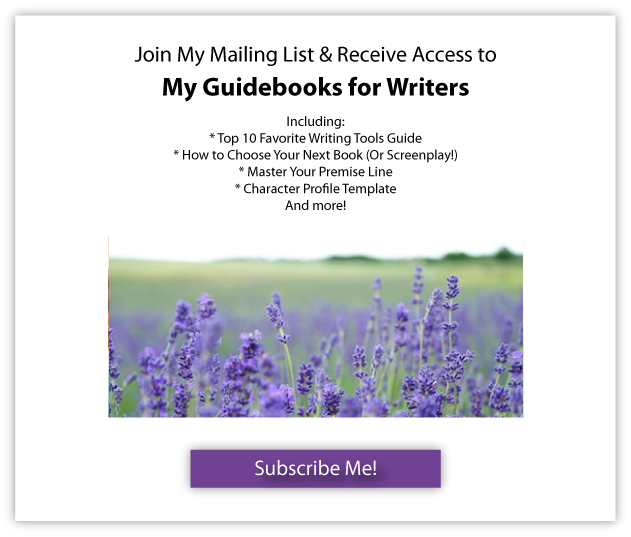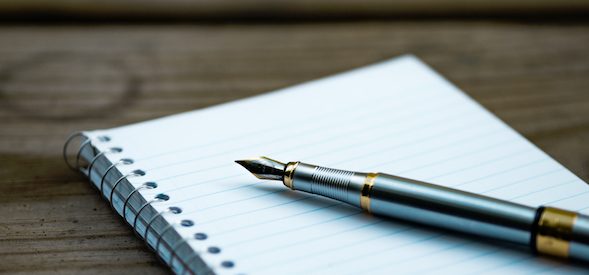Here at Called to Write, we’re rereading Steven Pressfield’s The War of Art.
I’ve read it at least five times already. And referred to it many times in between.
This month, as part of starting off the new year, I invited my Called to Write members to read (or reread) The War of Art with me. We’ll have an online book club discussion about it next week where I’m sure we’ll learn even more about this brilliant book as we discuss it together.
Here’s why I made this pick.
The War of Art is a Bible for Writing
The War of Art has been like a bible for me since I first read it. It was the first time I understood that I wasn’t struggling to write because I was lazy, or “a procrastinator” by nature, unoriginal, or lacking ideas. When I read it, a lightning bolt of understanding flashed through me. I was afraid. I was afraid I would fail, that I would succeed, that I wouldn’t do my ideas justice. Resistance was what was paralyzing me.
It was then I began to understand what it meant to face the fear and work anyway, and to help other writers do the same.
We Sometimes Need Help Finding Our Way
2018 was a hard year for many of us. It was rough personally, socially, politically, and more.
In my own life, 2018 was borderline apocalyptic. Between losing my father early in the year, several temporary-but-limiting-and-impacting health issues, wretched tech problems with the (old) writing program I was running, the terrible air quality and fires on the west coast over the summer and deep into November, and the political and cultural climate we’re living in right now, not to mention the day-to-day regular stuff of taking care of a family and running a business… well, like I said, it was rough. And between dealing with grief and all the other ruckus, my writing took a bit of a hit. I was writing, but not the way I wanted to be and resistance was high as the year drew to a close.
When life gets rocky, I focus on getting back on track as quickly as possible.
The War of Art felt like the perfect way of clarifying and reorienting, for all of us.
We Do Better, Together
While I knew reading The War of Art alone would be fruitful, I also know there is power in reading and learning together.
I also know it can give us a common language to communicate about our writing challenges, much as we were able to do after reading Finish by Jon Acuff last year.
I also sense, in the midst of this globally challenging time, that collectively strengthening our resolve, grit, resilience, sovereignty, and drive will help us better support each other to stay on track with what we were put here to do.
Your Turn
Have you read The War of Art?
How has it changed your perspective on your writing?
I’d love to read your thoughts in the comments below.
![]()
 Do you have a copy of The War of Art?
Do you have a copy of The War of Art?
If you’re in the U.S., join my mailing list and we’ll send you one! You’ll receive instructions about how to request your book when you sign up. We also have copies of Pressfield’s book The Knowledge to share, though we’re asking you to pick one, not both. :) Many thanks to Steven and Callie Oettinger at Black Irish Books for creating this opportunity for us to share these books with you.
You May Also Like:













